If you’re considering taking out an unsecured personal loan in Singapore, you might be wondering about the process and whether it’s a viable option for you. Unsecured loans, also known as personal loans, can provide financial assistance without requiring collateral, making them an attractive option for many individuals. Understanding the eligibility criteria and the advantages of unsecured personal loans can help you determine if this type of financial product is suitable for your needs.
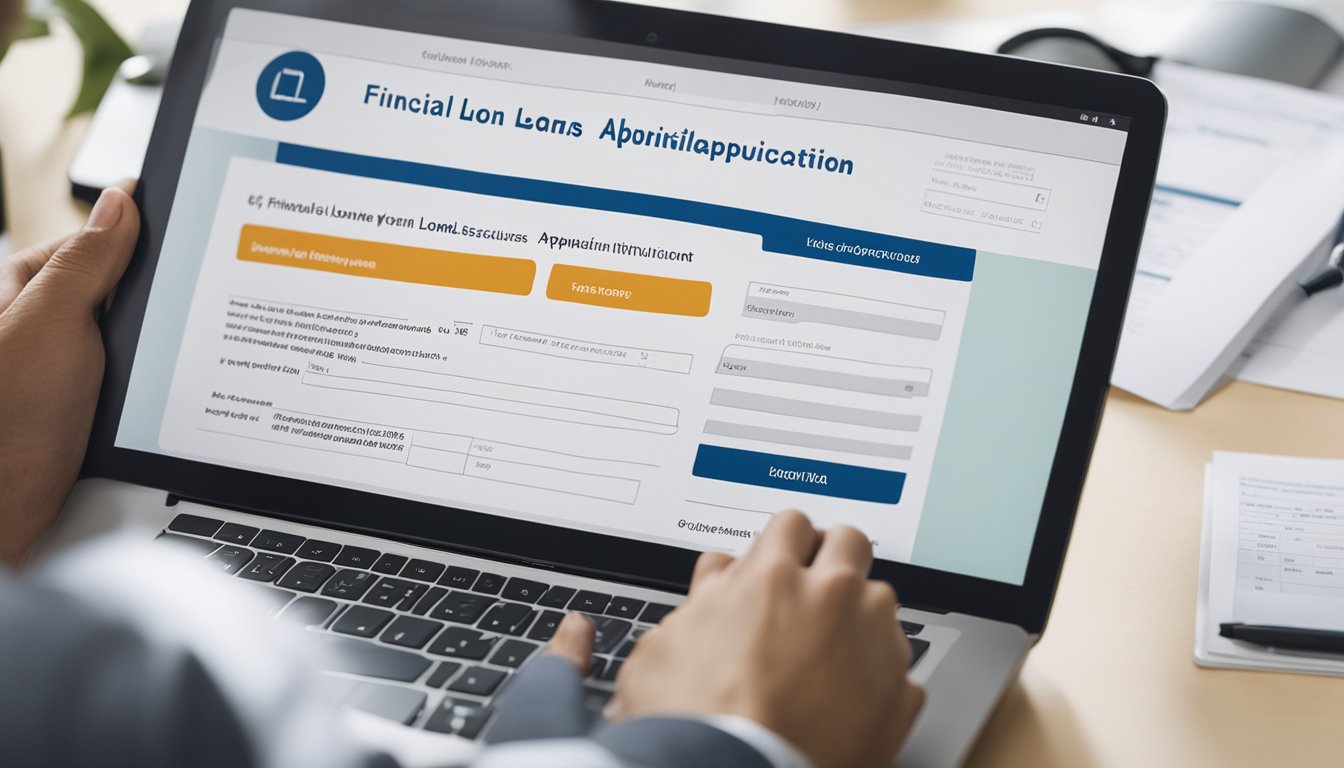
When it comes to unsecured personal loans in Singapore, it’s important to be aware of the specific eligibility criteria and the potential risks involved. By exploring the application process and understanding how to manage repayments and debt, you can make an informed decision about whether an unsecured personal loan is the right choice for you. As you delve into the details, it’s crucial to consider the impact of unsecured personal loans on your overall financial health and choose a reputable lender that aligns with your requirements.
Key Takeaways
- Understanding the eligibility criteria and advantages of unsecured personal loans is crucial before considering this financial product in Singapore.
- Managing repayments and debt, as well as evaluating the impact on your financial health, are essential aspects to consider when applying for an unsecured personal loan.
- Choosing a reputable lender that aligns with your specific needs is a key factor in the decision-making process for unsecured personal loans.
Understanding Unsecured Personal Loans
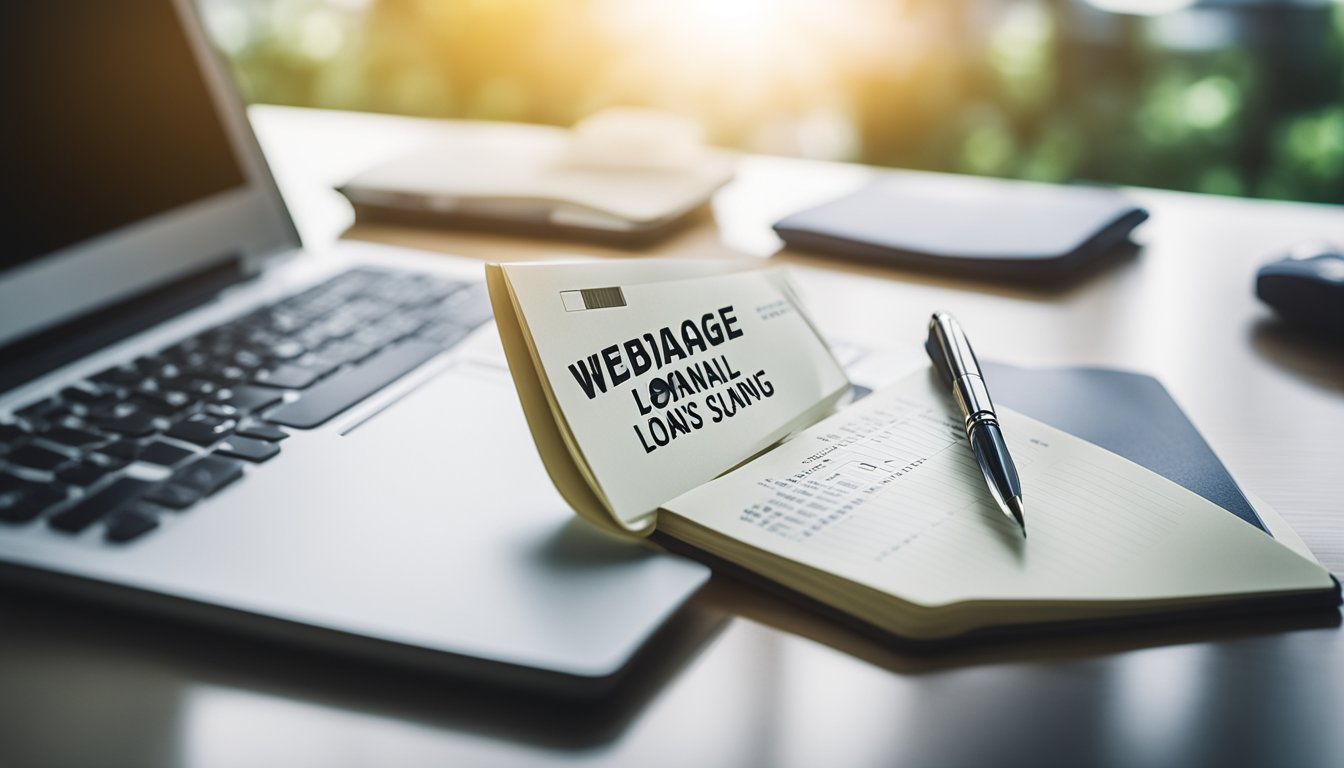
If you’re looking to borrow money in Singapore, you may have heard of unsecured personal loans. These types of loans are popular among people who need to borrow money for a variety of reasons, such as paying for a wedding, home renovation, or unexpected medical bills. In this section, we’ll explain what unsecured loans are and how they differ from secured loans.
What Is an Unsecured Loan?
An unsecured loan is a type of loan that doesn’t require collateral. Collateral is something of value that you pledge as security for the loan. If you don’t repay the loan, the lender can seize the collateral to recover their losses. With an unsecured loan, you don’t need to provide collateral, which means you don’t need to put your assets at risk.
Unsecured loans are typically granted based on your creditworthiness. This means that the lender will look at your credit score, income, and other factors to determine whether you’re a good candidate for the loan. If you have a good credit score and a stable income, you’re more likely to be approved for an unsecured loan.
Unsecured vs Secured Loans
The main difference between unsecured and secured loans is that secured loans require collateral, while unsecured loans don’t. Secured loans are typically used for larger purchases, such as buying a house or car. The collateral for a secured loan is usually the item you’re purchasing. For example, if you take out a mortgage to buy a house, the house serves as collateral for the loan.
Unsecured loans, on the other hand, are typically used for smaller purchases or to cover unexpected expenses. Because they don’t require collateral, unsecured loans are often easier to obtain than secured loans. However, they typically come with higher interest rates and fees than secured loans.
In summary, unsecured personal loans are a type of loan that doesn’t require collateral. They’re typically granted based on your creditworthiness and are often used for smaller purchases or to cover unexpected expenses. If you’re considering an unsecured loan, it’s important to understand the difference between secured and unsecured loans, and to shop around for the best interest rates and terms.
Eligibility Criteria for Unsecured Personal Loans
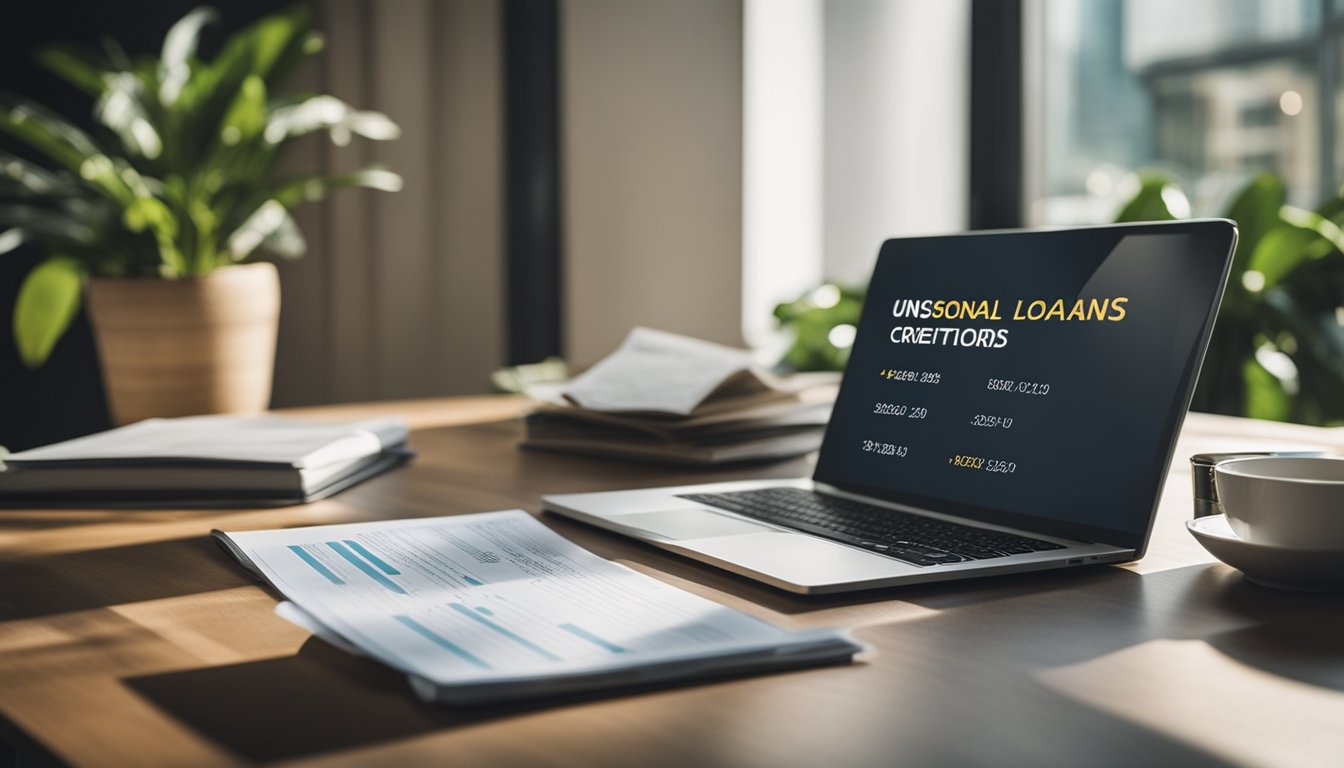
If you are considering applying for an unsecured personal loan in Singapore, there are certain eligibility criteria that you need to meet to be approved for the loan. Here are the key factors that lenders consider when assessing your eligibility for an unsecured personal loan:
Creditworthiness and Credit Score
Your creditworthiness is a measure of your ability to repay your debts on time. Lenders use your credit score to assess your creditworthiness. Your credit score is a numerical representation of your creditworthiness, based on your credit history. A high credit score indicates that you are a low-risk borrower, while a low credit score indicates that you are a high-risk borrower.
To be eligible for an unsecured personal loan in Singapore, you need to have a good credit score. Most lenders require a credit score of at least 600 to be approved for an unsecured personal loan. If you have a low credit score, you may still be able to get a loan, but you may have to pay a higher interest rate.
Monthly Income and Employment Stability
Your monthly income and employment stability are also important factors that lenders consider when assessing your eligibility for an unsecured personal loan. Lenders want to ensure that you have a stable income and are able to repay your loan on time.
To be eligible for an unsecured personal loan in Singapore, you need to have a stable income and employment. Most lenders require you to have a minimum monthly income of at least S$1,500 and to have been employed for at least 3 to 6 months. You may also be required to provide proof of income, such as your latest payslip or bank statement.
In summary, to be eligible for an unsecured personal loan in Singapore, you need to have a good credit score, a stable income, and employment. Make sure you meet these eligibility criteria before applying for an unsecured personal loan.
Advantages of Unsecured Personal Loans

If you’re looking for a flexible and multi-purpose loan, an unsecured personal loan in Singapore is a great option. Here are some advantages of unsecured personal loans that you should know about.
Flexibility in Usage
With an unsecured personal loan, you have the flexibility to use the loan amount for a variety of purposes. Whether you need to pay for a wedding, home renovation, or medical bills, you can use the loan amount as per your requirements. You can even use the loan amount to consolidate your debts into a single payment, which can make it easier to manage your finances.
No Collateral Required
One of the biggest advantages of unsecured personal loans is that you don’t need to provide any collateral to secure the loan. This means that you don’t have to put up any of your assets as security. As a result, unsecured personal loans are a great option for people who don’t have any assets to offer as collateral.
Quick Approval Times
Another advantage of unsecured personal loans is that they typically have quick approval times. Since there is no collateral involved, the lender doesn’t need to spend time evaluating your assets. As a result, you can get approved for an unsecured personal loan in Singapore in a matter of days.
Overall, unsecured personal loans in Singapore offer a lot of advantages. They are flexible, multi-purpose, and don’t require any collateral. Additionally, they have quick approval times, which can be helpful if you need the funds quickly.
Risks and Considerations

If you are considering taking out an unsecured personal loan in Singapore, it is important to understand the potential risks and considerations involved. Here are some key points to keep in mind:
Higher Interest Rates
One of the biggest risks associated with unsecured personal loans is that they often come with higher interest rates than secured loans. This is because lenders are taking on more risk by lending money without any collateral to back it up. Therefore, it is important to compare interest rates and terms from different lenders to find the best deal.
Credit Score Impact
Another consideration is that taking out an unsecured personal loan can have an impact on your credit score. If you make your payments on time and in full, it can help improve your credit score. However, if you miss payments or default on the loan, it can have a negative impact on your credit score, making it harder to get approved for credit in the future.
Risk of Overborrowing
Finally, it is important to be mindful of the risk of overborrowing when taking out an unsecured personal loan. Without any collateral to back up the loan, it can be tempting to borrow more than you can realistically afford to pay back. This can lead to financial difficulties down the line, including missed payments, default, and even bankruptcy.
To avoid this risk, it is important to carefully consider your financial situation and only borrow what you need and can realistically afford to repay. You should also take the time to compare different lenders and loan options to find the best deal for your needs and budget.
Overall, while unsecured personal loans can be a useful tool for borrowing money when you need it, it is important to be aware of the potential risks and considerations involved. By doing your research and making informed decisions, you can find the right loan for your needs and avoid financial difficulties down the line.
Applying for an Unsecured Personal Loan

Getting an unsecured personal loan in Singapore is a straightforward process. You can apply for a loan from a bank or a licensed moneylender. Here’s what you need to know about the application process and required documentation.
The Application Process
To apply for an unsecured personal loan, you need to follow these steps:
- Research and compare loan options: Before applying for a loan, research and compare different loan options to find the one that suits your needs. Consider factors such as interest rates, loan amount, repayment terms, and fees.
- Check your eligibility: Check the eligibility criteria for the loan you want to apply for. Most lenders require borrowers to be at least 21 years old, have a minimum income, and meet other criteria.
- Fill out the application form: Once you have found a loan that meets your needs and you are eligible for, fill out the application form. You can do this online or in person at a bank or licensed moneylender.
- Submit the required documents: You will need to submit certain documents along with your loan application. These may include your NRIC, proof of income, employment letter, bank statements, and other documents as required by the lender.
- Wait for approval: After submitting your loan application and required documents, wait for the lender to review your application and approve it. This process can take a few days to a few weeks.
Required Documentation
To apply for an unsecured personal loan in Singapore, you will need to provide the following documents:
- NRIC or passport: You will need to provide a copy of your NRIC or passport as proof of identity.
- Proof of income: You will need to provide proof of your income, such as your latest payslip, CPF statement, or income tax notice of assessment.
- Employment letter: If you are employed, you will need to provide an employment letter from your employer.
- Bank statements: You will need to provide your bank statements for the past three to six months.
- Other documents: Depending on the lender, you may need to provide other documents such as proof of address, credit report, or business registration documents.
The required documentation may vary depending on the lender and the loan you are applying for. Make sure to check the lender’s website or contact them directly to find out what documents you need to provide.
Overall, applying for an unsecured personal loan in Singapore is a simple process. By following the steps outlined above and providing the required documentation, you can get the loan you need to meet your financial goals.
Financial Products Similar to Unsecured Personal Loans
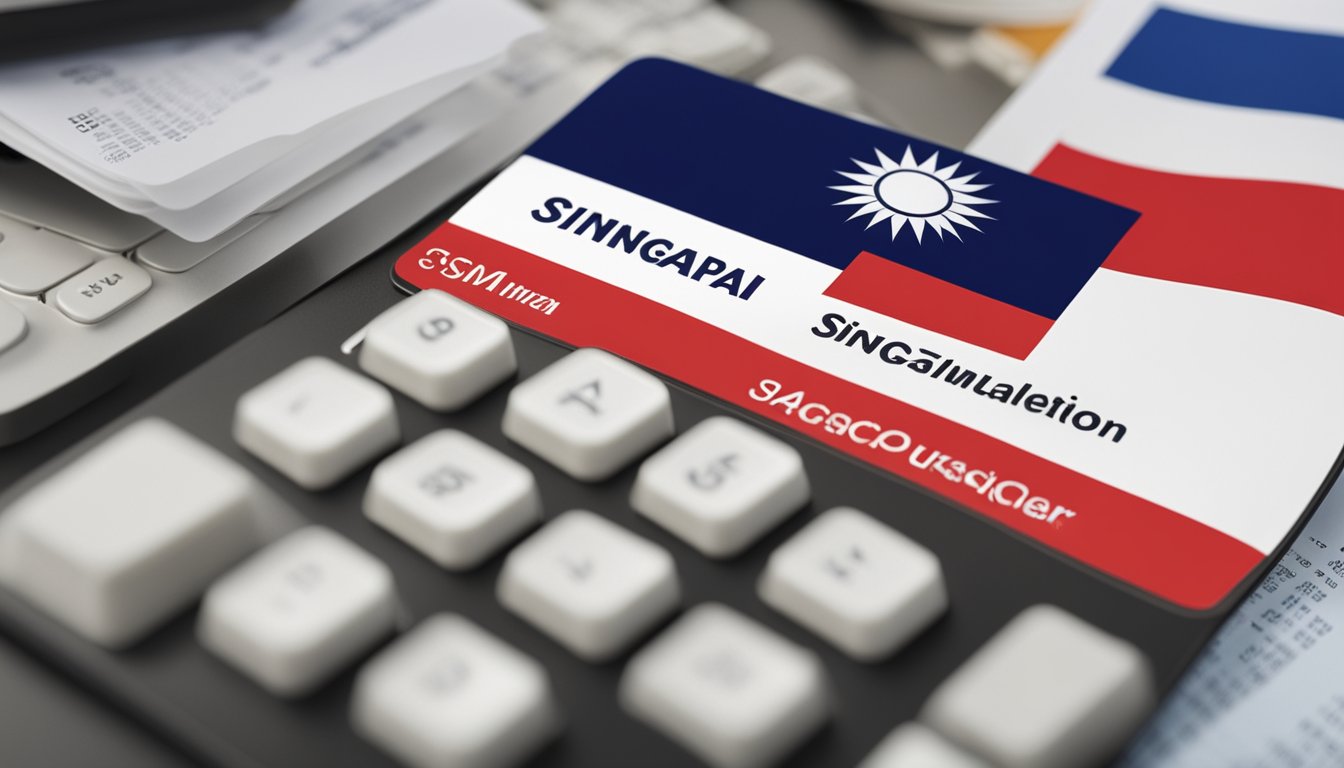
If you’re looking for a way to borrow money without putting up collateral, you might be wondering if there are any other financial products similar to unsecured personal loans. The good news is that there are several options available to you in Singapore.
Credit Cards and Lines of Credit
One option is to use a credit card or line of credit. Both of these products allow you to borrow money without putting up any collateral. With a credit card, you have a set credit limit that you can borrow against. You can use your credit card to make purchases or withdraw cash, up to your credit limit.
A line of credit, on the other hand, is a revolving credit facility that you can draw on as and when you need it. You only pay interest on the amount you’ve borrowed, and you can repay the balance at any time. Lines of credit usually have higher credit limits than credit cards, making them a good option if you need to borrow a larger amount of money.
Balance Transfer Plans
If you already have credit card debt, a balance transfer plan could be a good option for you. This is where you transfer your existing credit card debt to a new credit card that offers a lower interest rate. This can help you save money on interest charges and pay off your debt faster.
Debt Consolidation Plans
If you have multiple debts, a debt consolidation plan could be a good option for you. This is where you take out a new loan to pay off your existing debts. This can help you simplify your finances and reduce your monthly repayments. You can also save money on interest charges if you can get a lower interest rate on your new loan.
Overall, there are several financial products similar to unsecured personal loans that you can consider if you need to borrow money without putting up collateral. Whether you choose a credit card, line of credit, balance transfer plan, or debt consolidation plan, make sure you understand the terms and conditions and can afford the repayments.
Managing Repayments and Debt

If you have taken out an unsecured personal loan in Singapore, it is important to manage your repayments and debt effectively to avoid falling into financial difficulties. Here are some tips to help you manage your debt:
Creating a Repayment Plan
The first step to managing your debt is to create a repayment plan. This plan should take into account your budget, the repayment period, and the interest rates and terms of your loan. You should also consider whether you have any other debts that need to be repaid.
To create a repayment plan, start by listing all of your debts, including the amount owed, the interest rate, and the minimum monthly payment. Next, prioritise your debts based on the interest rate, with the highest interest rate debts being paid off first. You can use a debt repayment calculator to help you work out how much you need to pay each month to clear your debts.
Understanding Interest Rates and Terms
When taking out an unsecured personal loan, it is important to understand the interest rates and terms of your loan. Interest rates can vary depending on the lender and your credit score, so it is important to shop around to find the best deal.
You should also consider whether to take out a term loan, revolving loan, or instalment payment plan. A term loan has a fixed repayment period and interest rate, while a revolving loan allows you to borrow and repay money as and when you need it. An instalment payment plan allows you to repay your loan in fixed monthly instalments.
By understanding the interest rates and terms of your loan, you can make informed decisions about your borrowing and ensure that you can manage your repayments effectively.
Overall, managing your repayments and debt is essential when taking out an unsecured personal loan in Singapore. By creating a repayment plan and understanding the interest rates and terms of your loan, you can avoid falling into financial difficulties and ensure that you can repay your loan on time and in full.
Choosing the Right Lender

When it comes to getting an unsecured personal loan in Singapore, choosing the right lender is crucial. Here are some factors to consider when making your decision:
Banks vs Licensed Moneylenders
One of the first things to decide is whether you want to borrow from a bank or a licensed moneylender. Banks tend to offer lower interest rates and more favourable terms, but they also have stricter eligibility criteria and longer processing times. On the other hand, licensed moneylenders may be more flexible in their lending criteria and offer faster approval times, but they also tend to charge higher interest rates.
If you decide to go with a licensed moneylender, make sure to choose one that is accredited by the Ministry of Law. Accredited moneylenders are required to follow certain regulations and guidelines, which can help protect you from unscrupulous lenders.
Comparing Loan Offers
Once you’ve decided on the type of lender you want to work with, the next step is to compare loan offers. Look for the following factors:
- Interest rates: The interest rate is one of the most important factors to consider, as it will determine how much you’ll pay back over the life of the loan. Make sure to compare rates from multiple lenders to ensure you’re getting a competitive offer.
- Loan amount: Different lenders may offer different loan amounts, so make sure to choose one that can meet your borrowing needs.
- Repayment terms: Look at the repayment terms offered by each lender, including the length of the loan and any fees or penalties for early repayment.
- Eligibility criteria: Make sure you meet the eligibility criteria for each lender before applying. This can save you time and prevent unnecessary credit checks, which can negatively impact your credit score.
By considering these factors and doing your research, you can find the right lender and loan offer for your needs.
Impact of Unsecured Personal Loans on Financial Health

When considering an unsecured personal loan, it’s essential to weigh the impact it can have on your financial health. Here are some factors to consider:
Building or Damaging Credit History
Taking out an unsecured personal loan can be an effective way to build a good credit history if you make timely repayments. On the other hand, if you miss payments or default on the loan, it can damage your credit score and make it difficult to obtain credit in the future.
It’s important to understand that your credit history is a record of your borrowing and debt repayment behaviour. A good credit score is essential if you want to be approved for loans and credit cards with favourable terms and interest rates.
Strategies for Responsible Borrowing
To ensure that an unsecured personal loan does not negatively impact your financial health, it’s essential to borrow responsibly. Here are some strategies to consider:
- Only borrow what you need: It’s tempting to borrow more than you need, but this can lead to unnecessary debt and interest charges.
- Read the terms and conditions: Before accepting a loan, make sure you understand the terms and conditions, including the interest rate, repayment period, and any fees.
- Make timely repayments: Missing payments or defaulting on the loan can damage your credit score and make it difficult to obtain credit in the future.
- Pay off the loan early: If possible, try to pay off the loan early to reduce the amount of interest you pay.
- Monitor your credit score: Regularly check your credit score to ensure that it is accurate and up-to-date.
In conclusion, an unsecured personal loan can be a useful financial tool if used responsibly. By understanding the impact it can have on your credit history and borrowing responsibly, you can ensure that it does not negatively impact your financial health.
Frequently Asked Questions
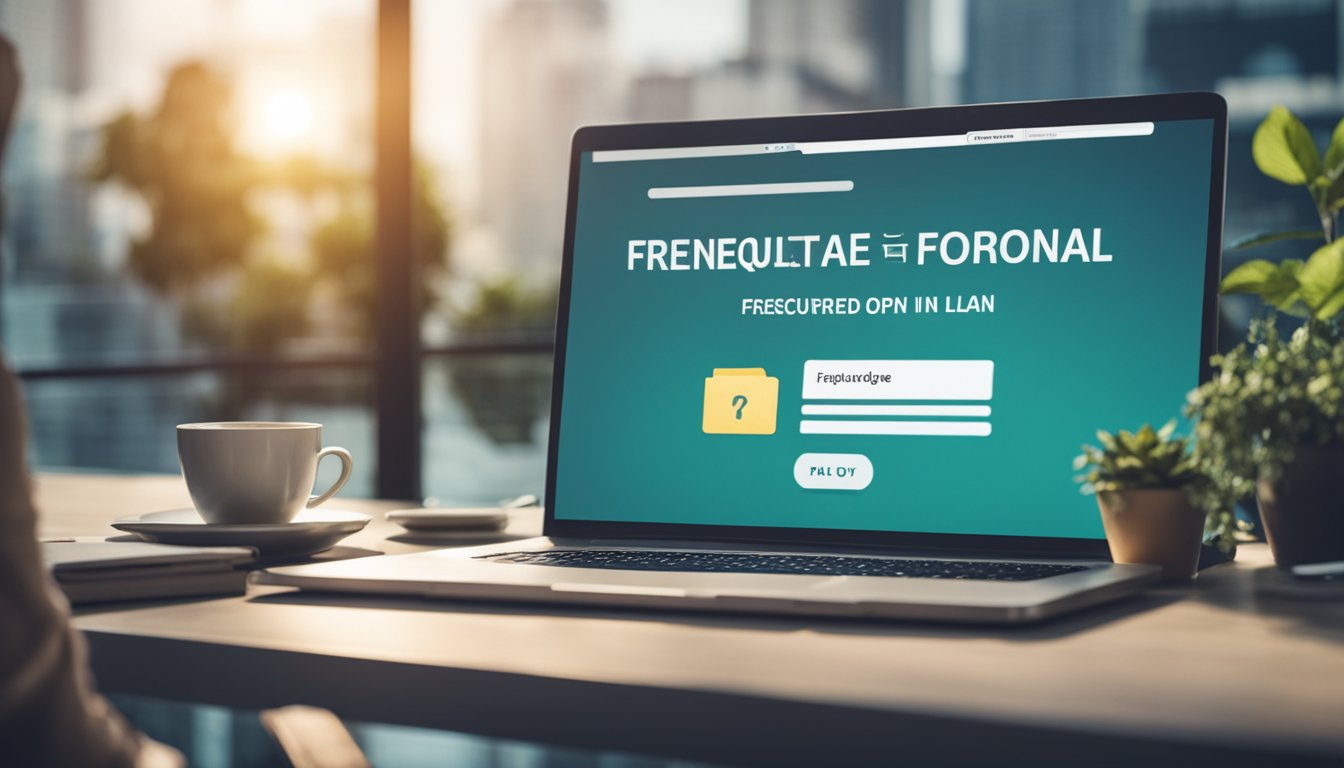
What’s the buzz about snagging an unsecured personal loan in Singapore?
Unsecured personal loans in Singapore are popular because they do not require any collateral. This means that you do not have to put up any assets, such as your house or car, as security for the loan. Moreover, unsecured loans are easy to apply for and can be disbursed quickly.
How sky-high can the interest rates for unsecured loans soar?
Interest rates for unsecured loans in Singapore can be high, ranging from 6% to 10% per annum. However, the actual interest rate you are offered will depend on factors such as your credit score, income, and repayment history. It is important to compare interest rates from different lenders before applying for a loan.
Are there any cheeky prerequisites to qualify for an unsecured loan?
To qualify for an unsecured loan in Singapore, you must meet certain eligibility criteria, such as being a Singapore citizen or permanent resident, having a minimum income, and being of a certain age. You will also need to provide documents such as your NRIC, income proof and bank statements.
What’s the maximum dosh one can borrow without security?
The maximum amount you can borrow without security will depend on your income and creditworthiness. Generally, lenders offer unsecured loans ranging from S$1,000 to S$200,000. However, some lenders may offer higher loan amounts to customers with good credit scores and high incomes.
How does one calculate the repayments for a personal loan?
To calculate the repayments for a personal loan, you can use an online loan calculator. You will need to enter the loan amount, interest rate, and loan tenure to get an estimate of your monthly repayments. Remember to factor in any processing fees or early repayment fees that may apply.
Is it possible to secure a loan without collateral from DBS?
Yes, DBS Bank offers unsecured personal loans to eligible customers. The interest rates for these loans range from 3.88% to 8.99% per annum, depending on your credit score and income. You can apply for a loan online or at any DBS branch.

